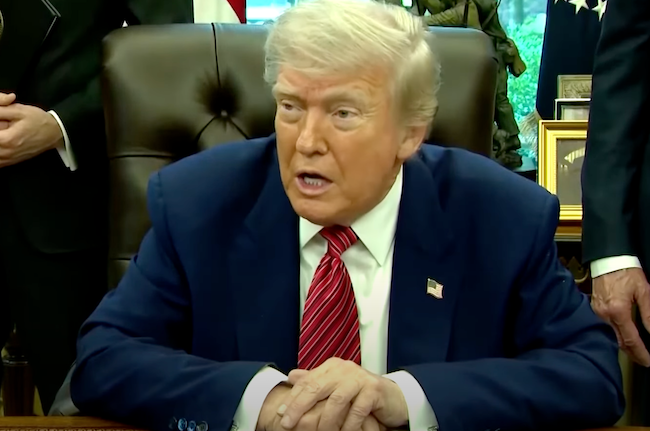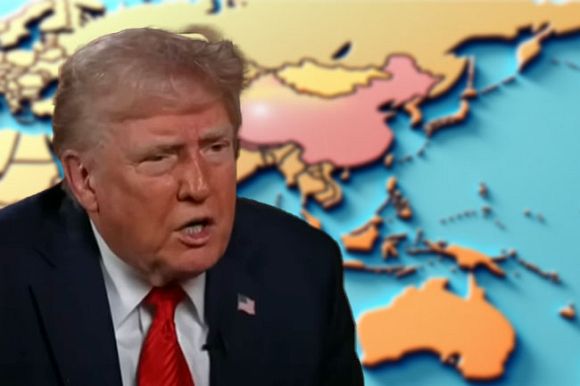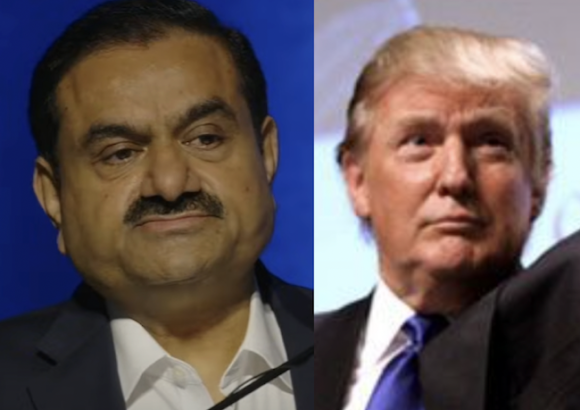The current policies of the U.S. Government are undermining its comparative advantage in education, technology, military, film and agriculture. Patrick Drennan reports.
A COMPARATIVE ADVANTAGE exists when a country can produce goods at a lower opportunity cost compared to other countries.
America has economic comparative advantages in services such as:
- insurance and finance;
- beef, corn and soya beans;
- movies and popular music;
- arms and space technology;
- oil and natural gas; and
- software.
The U.S. has these advantages because of its highly varied and industrialised land mass, advanced labour skills and creativity, the best institutions of higher education and financial wealth and backing.
It does not have comparative advantage in large-scale, labour-intensive industries like textiles, footwear, cellphone and computer manufacture, generic medicines and tropical foods such as bananas, rice and cocoa. Unless America imports cheap labour, artificially alters its land mass in tropical states like Hawaii, or uses vast amounts of government (taxpayer) money to fund these industries, it never will.
Few countries have the same natural resources, infrastructure, skilled labour force, or technology to compete with America, but they have their own advantages.
The policies of the current U.S. Administration endanger America’s comparative advantages, especially in education, technology, the military, movies and agriculture.
Education
The U.S. has cornered the market on higher education, accounting for around one-third of the top 100 universities. The Center for Strategic and International Studies found that the “stay rate” for American temporary visa holders with science and engineering doctorate degrees was approximately 71% after five years.
However, growing visa rejection rates amidst changing U.S. immigration policy, along with executive orders targeting education, including U.S. President Donald Trump’s vendetta against Harvard University, are impacting sentiments.
Since Trump’s return to office, his administration has revoked more than a thousand student visas, often without explanation. International students are now looking for the best universities outside the United States.
It is not just the students — 75% of U.S. scientists who answered a Nature poll have considered leaving America for Canada or Europe.
Technology
The American technology business has always been led by large, dominant firms. Companies such as IBM, Google, Intel, Microsoft, Apple, Meta, and Amazon have established markets, set standards, leveraged scale economies and supported long-term, tax-exempt research and development. This advantage allows the U.S. to produce high-value tech products at competitive costs and drive global trade in advanced technologies.
The main reason for this comparative advantage is that the U.S. has a large and highly skilled workforce, particularly in STEM (science, technology, engineering, and mathematics) fields. This allows for the development and implementation of complex technologies.
The main challenge to America sustaining its technological advantage is losing its skilled labour force.
According to the National Science Foundation's (NSF) 2024 Indicators Report on the state of U.S. science and engineering, foreign-born workers comprised approximately 19% of the overall U.S. STEM workforce in 2021.
AI
In January 2025, the arrival of the Chinese-built Deepseek-R1 – a rival to OpenAI's ChatGPT and Google's Gemini – shocked America because it had been developed for only $6 million using cheaper, legacy semiconductor chips, rather than the fastest graphic processing units (GPUs), which are made by Californian tech company Nvidia.
Artificial intelligence applications are software programs that use AI techniques to perform specific tasks. They are increasingly valuable in healthcare, education, the military, finance and manufacturing.
The foundations of the chatbot training method, known as "reinforcement learning", were developed with NSF grants.
But the Department of Government Efficiency (DOGE) has frozen, cancelled, or otherwise slowed billions of dollars in grants and fired hundreds of staff from the federal agencies that have funded the nation’s pioneering academic research for decades, including the National Institutes of Health and the NSF.
Military
In 2025, America will spend $895 billion on the military. This costs the average American taxpayer about $5,000 per year. Consequently, America leads the world in sophisticated military technology and equipment.
The U.S. military's comparative advantage stems from its advanced technology, robust logistical support, AI and a vast alliance network — the latter of which is under threat by isolationist policies.
No other nation can currently produce weapons like the Patriot air defence missile systems, M142 HIMARS truck-mounted missiles, ATCAM long-range missiles and the seemingly irreplaceable Bradley fighting vehicles. Russia, China and America’s NATO allies are racing to catch-up.
Nevertheless, more American allies are turning to other arms manufacturers to resupply their military. For example, Poland bought South Korean tanks; the Czech Republic, Hungary and Colombia bought Swedish JAS 39 Gripen fighter jets; and Australia bought Spanish air tankers, in billion dollar deals. Arguably the foreign alternatives are cheaper, flexible, just as modern and delivered on time and on budget. The cost overruns on America’s new F-35 jet fighters are a prime example.
Movies
On May 5, Trump announced a 100% tariff on movies produced outside the country, saying the American movie industry was dying a "very fast death". Since then, there has been no further comments or details on how this would work.
Trump lamented the fact that many Hollywood movies were now being filmed overseas. High-profile examples of so-called “runaway production” — a term describing the flight of movie production from Hollywood, can be found in the UK. Wicked and Barbie, two of the biggest blockbusters of recent years, were principally shot in studios in the south-east of England.
According to ProdPro’s 2025 survey of studio executives, when asked what they considered the top criteria when selecting a filming location, tax incentives were the main consideration.
Production tax incentives, however, are not only available in other countries, but 27 American states other than California offer tax incentives. States with rich credits include Louisiana, New York and Georgia, the home of the Marvel film series.
Despite the hyperbole, the financing and distribution of movies remain in America.
The Hollywood "big five" production companies and the top movie distributors including online distributors such as Netflix, Apple TV+, and Disney are predominantly American-based and owned.
On CNN, former Republican congressman Jim Renacci declared:
"There are far better tools [than tariffs]: tax incentives for domestic production, investments in film infrastructure, and public-private partnerships that make the U.S. competitive.”
Agriculture
The American federal government spends more than $30 billion a year on subsidies for farm businesses and agriculture.
The 2025 Farm Bill was an opportunity for Congress to rethink the extensive subsidies provided to agriculture. The subsidies can distort the economy, harm the environment, and flow mainly to the largest producers. In 2021, the average income of all farm households was $135,281, which was 32% higher than the $102,316 average of all U.S. households.
However, without the subsidies, American farms and ranches would struggle to survive. On top of that, overseas producers are catching up.
In the last decade, the United States has supplied the most beef to the rest of the world. Now, according to the U.S. Department of Agriculture (USDA), the U.S. supplies 20% of the world's beef, with Brazil supplying 19%, and China 13%.
Interestingly, Brazilian company JBS S.A, the world’s largest meat processing enterprise, owns beef and poultry processing plants in 14 American states as well as Puerto Rico, and claims American subsidies and tax breaks.
New Zealand ended most of its farm subsidies in the 1980s, which was a bold reform given that the country is much more dependent on farming than the United States. Farm productivity, earnings and environmental practices all improved after New Zealand’s reforms, while farmers cut costs, diversified land use, sought nonfarm income and developed new markets.
To put that in perspective, the United States exported $178.7 billion in agricultural products in 2023, while New Zealand’s agricultural export revenue was about $US35 billion (AU$54 billion)in the year to 30 June 2023. Australian farmers, second only to New Zealand in the least subsidised country, exported $US56 billion (AU$87 billion) in agriculture, fisheries and forestry products in the 2022–23 financial year.
The Cato Institute came to this conclusion:
'When a government grants special privileges, such as tariff protection or subsidies, to particular producers within its country’s borders, the bulk of the burden of these privileges falls on that government’s citizens. As a result, that country is made poorer, not richer.'
For now, America will maintain a comparative advantage in the industries above. However, this will erode as overseas competitors continue to leverage advanced education, technology like AI and cheap labour forces to counter these advantages.
Patrick Drennan is a journalist based in New Zealand, with a degree in American history and economics.
 This work is licensed under a Creative Commons Attribution-NonCommercial-NoDerivs 3.0 Australia License
This work is licensed under a Creative Commons Attribution-NonCommercial-NoDerivs 3.0 Australia License
Support independent journalism Subscribe to IA.

Related Articles













